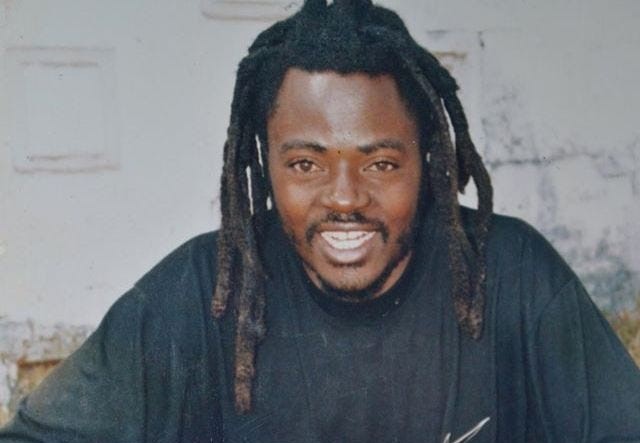
In his tribute article Evison Matafale: 12 Years Later published in 2015, veteran journalist and arts critic Gregory Gondwe writes about the pivotal role that Malawi’s reggae star Evison Matafale played as far as reggae music in Malawi is concerned.
Gondwe noted that before Matafale’s rise with his debut album Kuimba 1 in 1999, reggae in Malawi wasn’t taken seriously. Matafale’s emergence marked a transformative era, drawing significant attention to the genre.

“Before Matafale came on the musical scene, Malawians never took anyone playing reggae music seriously. But when he came on the scene with his first album Kuimba 1 in 1999, people started paying attention,” writes Gondwe.
Parallel to Matafale in Malawi, Jamaica’s reggae landscape was profoundly influenced by Garnett Silk, particularly in the early 1990s.
Reggae music analysts and artists concur that Jamaica’s reggae artist Garnett Silk also played an instrumental role in reggae music in Jamaica, particularly upon the release of his debut album in 1992 called It’s Growing.
After the death of Bob Marley in May 1981, there came some ‘slackness’ of reggae music in Jamaica such that there was an increase in the demise of the production and playing of conscious reggae music.

Against this backdrop, Garnett Silk emerged as a pivotal figure in the trend away from the “slackness” reggae music of the 1980s toward more culturally and conscious-oriented reggae music in the 1990s.
A tribute article on Garnett Silk by Alona Wartofsky which appeared in the Washington Post on December 25, 1994, described Garnett Silk’s pivotal role in reggae music in Jamaica as follows:
“Unlike the wildly popular “dance hall” reggae artists whose bad-boy lyrics are the antithesis of traditional religious reggae, Garnett Silk sang about God.”
Deejay Super Slice remarked as follows about Garnet Silk: “He was not just an artist, but he was more like a messenger that used reggae music as his means of translating goodness, righteousness and a positive message to all the people of the world.”
In the same vein, Gondwe described Evison Matafale as follows: “He played his music modestly, he never sat down to compose songs, but believed God just used to give him the lyrics. He said it was the reason he never denied when people called him a prophet.”
Looking at the similarities between the two artists, one can point out too many.
For starters listening to Matafale’s No Winer not loser and Garnett’s It’s Growing, it is clear that the two artists created songs with striking similarities.
In It’s Growing, Garnett talks about brothers and sisters, asking them not to waste time but unite and move together. He advises people to live in love and harmony and this is more or less what Evison Matafale sings in No Winer nor loser.
In his other track Zion in a Vison, Garnett sings about having a dream in which the Almighty God was speaking to him. He says the dream appeared real and he did not want to wake up.
That is how Evison Matafale also starts his song No Winer nor Loser. He is having a dream in which the Creator is calling him and assigning him a noble duty and he also does not want to scream from the dream.
Additionally, Garnett Silk’s Judge Not and Evison Matafale’s Mfumu Ya Ayuda are strikingly similar.
In Judge Not, Garnett expresses a concern about people who are fond of despising other characters who deserve honour and respect. He preaches against underestimating others and rushing to pass judgment. He sings in part: “Don’t look down upon your brother...”
Similarly, Evison Matafale in Mkango wa Ayuda spreads more or less the same message. He sings that he who deserves honour should not be denied that honour or rather he who the cap fits, let him wear it. He artistically puts it: “Uyo yamkwana Nguwo mulekeni avale…”
Now coming to the personal lives of the two artists, one cannot help it but compare and come up with the same conclusion that these two were somewhat spiritually connected.
Both artists, for example, died sudden deaths that came at the pick of their careers as reggae artists such that their deaths were shocking to the entire nation in their respective countries of Malawi and Jamaica.
They both died at tender ages and both died after recording just two albums each.
It is also important to note that both artists had health struggles that happened after releasing their first albums.
They both went into hibernation for over six months each and only resurfaced in public with intriguing live performances.
After the deaths of the two artists, tribute songs done by various artists were released to honour the two.
Reggae music lovers find the music of the two artists exceptionally prophetic.
In Jamaica, reggae artist Ras Shiloh who sounds like Garnett openly remarks how he was deeply inspired by Garnett Silk’s music.
In Malawi, there is Hacks Mumba. Some reggae fans have remarked that to a certain extent Hacks Mumba’s voice sounds like Evison Matafale’s. The artist has also done tribute songs for Matafale and has been heard in the media mentioning that he was profoundly inspired by Garnett Silk, the fallen artist.
Both artists’ deaths were widely covered in the media.
Garnett Silk died on December 9, 1994 aged 28, while Evison Matafale died on November 27 2001 at the age of 32.








0 Comments